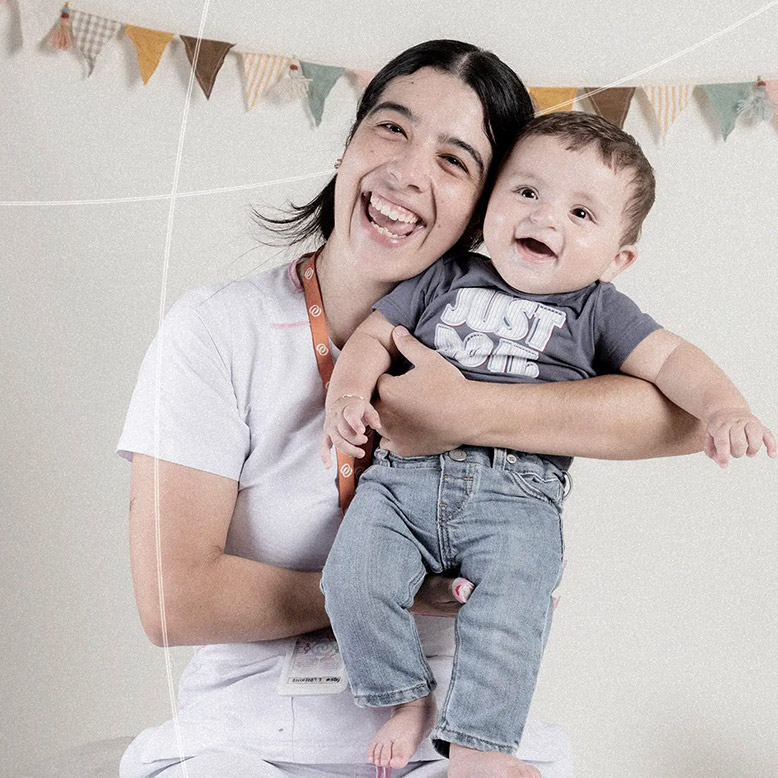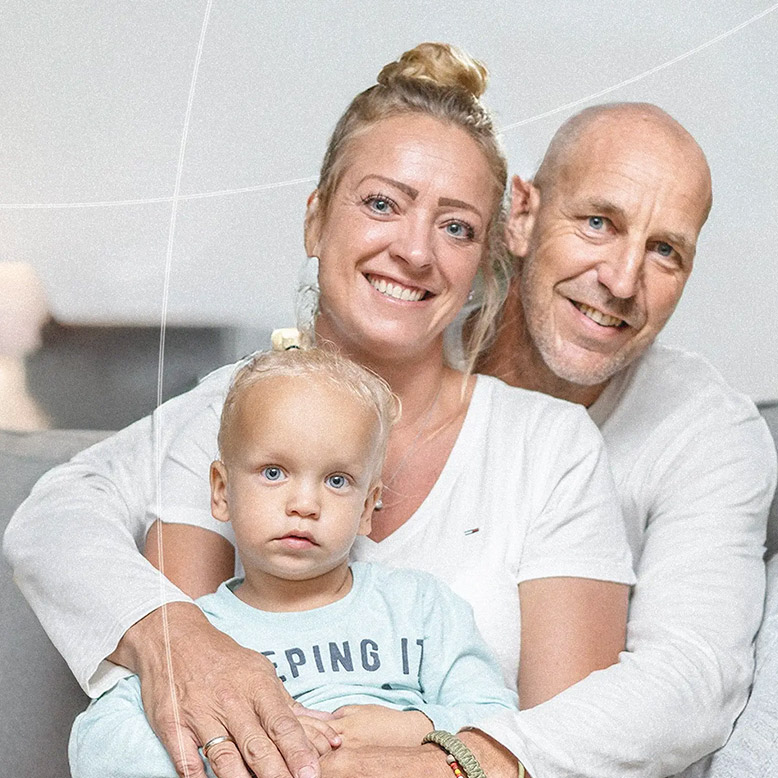An advanced treatment to help you achieve your dream of having a baby
IVF has significantly evolved in recent years, increasing success rates and bringing new hope to individuals and couples who wish to conceive.
What is In Vitro Fertilization (IVF-ICSI)?
In vitro fertilization is an assisted reproduction treatment that allows the egg and sperm to unite in a laboratory setting before transferring the resulting embryo into the mother’s uterus.
ICSI – Intracytoplasmic Sperm Injection
Advanced technology supporting fertility. ICSI increases the chances of achieving pregnancy in cases of severe male infertility.
ICSI (Intracytoplasmic Sperm Injection) is a specialized technique within IVF in which a single sperm is carefully selected and injected directly into the egg using a high-precision microscope.
ICSI with Morphologically Selected Sperm (IMSI)
Science and technology are working together to help you achieve your dream of becoming a parent.
With IMSI, we select the best-quality sperm to increase the chances of success during in vitro fertilization.
Intracytoplasmic Morphologically Selected Sperm Injection (IMSI) is an advanced IVF technique that allows for the selection of sperm with the best morphology before being injected into the egg.
Stages of in vitro fertilization (IVF) at Inser
Initial recognition ultrasound. Day 1–3 of the menstrual cycle.
Ovulation induction: Medication to stimulate the production of mature eggs.
Follow-up ultrasound. Day 5–9 of the menstrual cycle.
Ultrasound prior to egg retrieval. Day 9–12 of the menstrual cycle.
Egg retrieval. Day 11–14 of the menstrual cycle.
Semen sample collection.
Day 11–14 of the menstrual cycle.
Oocyte insemination and embryo culture. Day 11–19 of the menstrual cycle.
Embryo transfer. Day 14–19 of the menstrual cycle.
Cryopreservation and embryo preservation (if needed). Day 14–19 of the menstrual cycle.
Pregnancy test. Day 28 or 33 of the menstrual cycle.
Gestational ultrasound. Day 45 or 50 of the menstrual cycle.
Who is IVF recommended for?
IVF is recommended for women with complex ovulation disorders, blocked fallopian tubes, low ovarian reserve, severe endometriosis, male infertility, or when other fertility treatments have not been successful.
What are the chances of success with IVF treatment?
The success rate for a single IVF cycle is over 45% in women under 35. However, outcomes vary depending on factors such as the woman’s age, how long the couple has been trying to conceive, and the underlying cause of infertility. The cumulative pregnancy rate after three treatment cycles can reach 70–80%.
What is the Four-Cycle IVF Program?
To increase the chances of success and provide comprehensive support, Inser has developed the Four-Cycle IVF Program.
This program is highly beneficial both physically and emotionally, offering four complete IVF cycles (including fertilization and embryo culture). By increasing the number of attempts, the cumulative pregnancy rate can reach up to 80%.
Who is ICSI recommended for?
ICSI is an effective option for couples where male factor infertility is the main concern—such as low sperm count, poor motility, or abnormal sperm morphology.
Does ICSI improve the chances of pregnancy?
Yes, especially in cases of male infertility, because it allows for a more controlled fertilization process. However, success also depends on the quality of the egg and the resulting embryo.
What is the pregnancy rate with ICSI treatment?
The cumulative pregnancy rate after three treatment cycles can exceed 70%.
How does IMSI differ from conventional ICSI?
Unlike conventional ICSI, where sperm selection is done using a standard microscope, IMSI uses a high-resolution microscope (with magnification up to 6,000x) to detect even the smallest abnormalities in sperm cells.
This advanced selection helps improve embryo quality and increases implantation and pregnancy rates.
Does IMSI guarantee pregnancy?
No fertility treatment can guarantee pregnancy 100%, but IMSI significantly improves success rates in couples with severe male infertility or previous IVF failures.
Is IMSI a painful procedure?
No. Ovarian stimulation and egg retrieval are performed under mild sedation, and embryo transfer is a painless procedure.
Explora nuestras soluciones de fertilidad 🩵

Hablemos de Fertilidad
Consultas, estudios, congelación y almacenamiento, procedimientos quirúrgicos.

Tratamientos
Reproducción asistida con tratamientos de baja y alta complejidad.

Pacientes Internacionales
Viaja a Colombia e inicia tu tratamiento con Inser.

Experiencia del Paciente
Contenido educativo, testimonios y recursos para vivir una mejor experiencia.